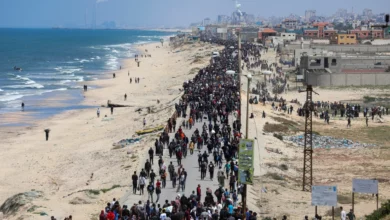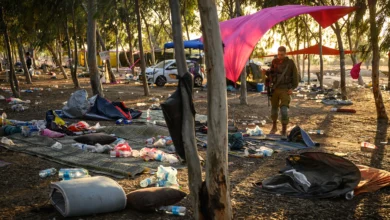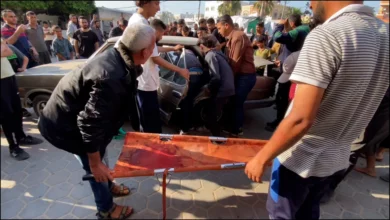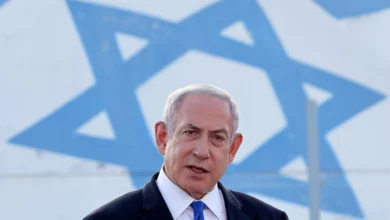
Arab leaders called Wednesday for a political solution to the conflict in Syria, overlooking Saudi-backed demands for greater military support for rebel forces to tip the balance in the war.
They were united, however, after a two-day summit in Kuwait in siding with the Palestinians in refusing to recognise Israel as a Jewish state, a flashpoint issue threatening to derail US-brokered peace talks.
Syria's opposition National Coalition chief Ahmed Jarba called at the opening of the summit for the rebels to be supplied with "sophisticated" weaponry.
"I do not ask you for a declaration of war," he said in a speech to Arab leaders, calling for pressure on world powers to fulfil pledges to supply arms.
Saudi Crown Prince Salman bin Abdulaziz, whose country is a key backer of the revolt against Syrian President Bashar al-Assad, said the world was "betraying" rebels by failing to arm them and leaving them "easy prey".
But the final declaration read out at the end of the summit called instead for a political solution to the three-year conflict which has cost over 146,000 lives.
"We call for a political solution to the crisis in Syria based on the Geneva I communique," calling for a peaceful transition of power, they said.
The communique, drawn up at an international conference in 2012 in the Swiss city, calls for a "peaceful transition" in Syria without specifying the fate of Assad.
"We strongly condemn the massacres committed by the Syrian regime against unarmed people," leaders of the 22-member Arab League said.
They reaffirmed their "total support for the Syrian National Coalition as a legitimate representative of the Syrian people."
Although last year's annual Arab summit, held in Doha, allocated Syria's seat to the National Coalition, it remained vacant at Kuwait's meeting.
The opposition has yet to meet the legal requirements, according to Arab League chief Nabil al-Arabi, whose organisation is divided over the conflict in Syria.
A clearly dissatisfied Jarba said that the decision "sends a message to the Assad regime encouraging it to continue to kill Syrians".
The Syria government's brutal repression of protests which erupted in March 2011 had resulted in its suspension from the Cairo-based Arab League.
The "Kuwait Declaration" made no mention of arming the rebels, although the Doha summit stressed the "right of every state to offer all forms of self-defence, including military," to the opposition.
The declaration echoed UN peace envoy Lakhdar Brahimi, who called at the summit for a political solution and urged an "end to the supply of arms to all parties".
Arabs reject 'Jewish state'
Separately, Arab leaders announced their "total rejection of the call to consider Israel a Jewish state," in the final statement.
The Palestinians recognised Israel at the start of the peace process in the early 1990s.
But Israeli Prime Minister Benjamin Netanyahu now insists they acknowledge it as the national homeland of the Jewish people, in a move which would effectively torpedo the "right of return" for Palestinian refugees.
US Secretary of State John Kerry is facing an uphill battle to keep the floundering peace talks on track beyond an April 29 deadline.
Palestinian leader Mahmoud Abbas, fresh from talks with US President Barack Obama in Washington last week, told the summit that Palestinians "reject even discussing the issue."
Netanyahu has placed the recognition dispute at the forefront of the talks, describing Arab rejection of the Jewish state as the "root of the conflict".
For the Palestinians, the issue is intimately entwined with the fate of their refugees who were forced out of their homes or fled in 1948 when Israel became a state.
They see Netanyahu's demand as a way to sidestep a negotiated solution to the refugee question.




